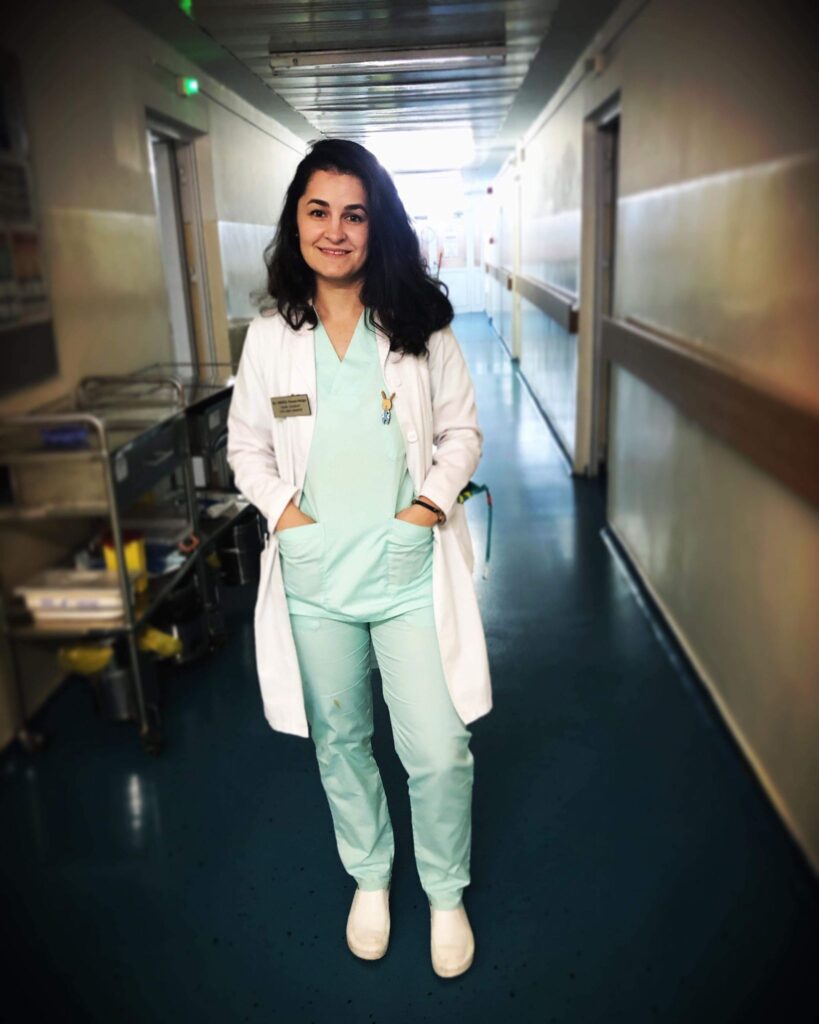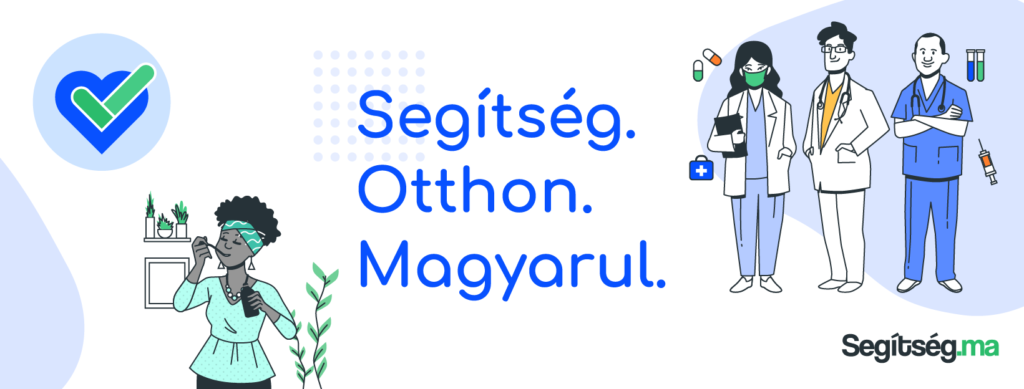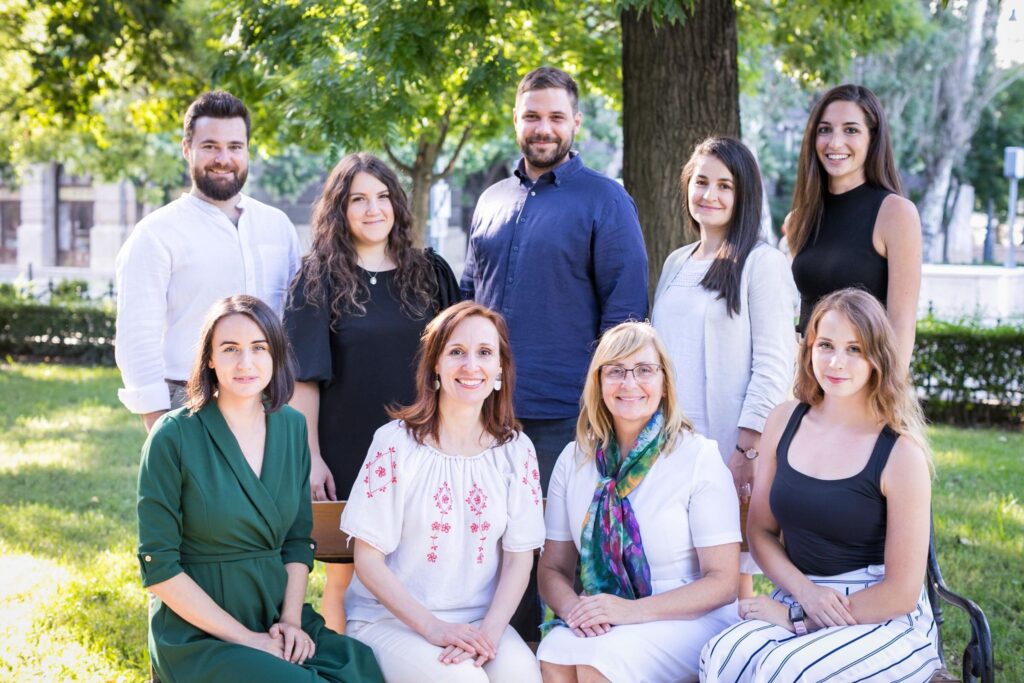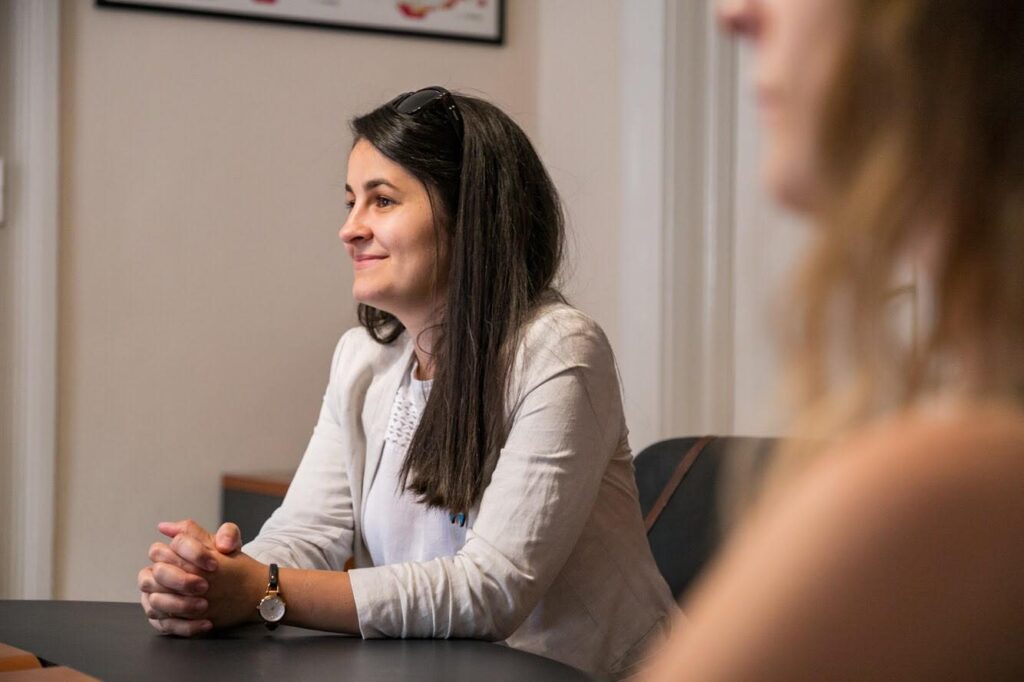For an ethnic minority, using the majority language of a country doesn’t always pose an obstacle; other times, one’s mother tongue would be preferable and more effective, such as when speaking to a doctor, in which case ethnic-language service can save lives. The project Segítség.ma (help.today) resolves this issue by linking Hungarian-speaking patients to Hungarian doctors in Romania, accelerating and easing the healing process. Plastic surgery physician, vice president of the Association of Resident Doctors from Transylvania, and co-developer of Segítség.ma, Dr. Tímea Helga Virág presented the project and its beneficial effects to TransylvaniaNOW.
As a minority in a country, there is often no opportunity for people to speak their mother tongue when dealing with certain issues and services. In some cases, it is necessary to communicate in the majority, national language, like when shopping in the supermarket in larger cities, dealing with administrative matters, and getting your car fixed, as well as at universities, workplaces, etc. This may or may not cause a problem, but with certain issues, such as visits to the doctor or hospital, a precise, detailed description of symptoms can greatly affect the patient’s outcome and speed of recovery.
“The community startup ‘Segítség.ma’ is a real Carpathian Basin project, which took its form as an online platform in the autumn of 2020. The most important aim of this interface that we have dreamed of is to enable Hungarian patients living outside of Hungary to find mother-tongue physical and mental healthcare for themselves and those around them, as easily and quickly as possible,” Tímea Helga told TransylvaniaNOW. The website makes finding a doctor very easy: A patient registers on the website for free, provides some personal information, then looks for a Hungarian-speaking professional to handle his or her symptoms, a specialist who lives as close as possible. The sick person and the doctor then can connect online and schedule a consultation.

“As a doctor practicing at home, in Transylvania, I often find that not everyone speaks the language of the country properly. This in itself is not so much a problem, but when we are talking about a sick person, this perspective is completely changed. Unfortunately, the situation of a sick person is in itself a vulnerable one, a situation filled with doubts and uncertainty. However, if we add the language barriers to it, this turns into an exponentially difficult life situation in just a couple of moments,” Tímea Helga Virág said. The resident doctor also stressed that as medics, they only have one task: to help those in need as effectively and quickly as possible, a task that is often delayed or prevented because of a lack of language skills.
“Growing up as a member of a minority, I know exactly how it feels when you cannot tell someone your problem in your native language. I think, as a doctor, it is an essential part of medicine that patients are able to describe their issues in their mother tongue because in medicine, every word, every symptom, and the precise description of these, has a very important role. Establishing an accurate and rapid diagnosis requires the medic to fully understand the patient and the patient to be able to explain his or her problems perfectly,” the resident doctor said, giving the reasons behind Segítség.ma.
Márton Veres, the president of the Hungarian Youth Conference – the highest level conciliator forum for Hungarian youth living in Hungary and the neighboring countries – came up with the idea of the website after seeing how Hungarian patients living outside of Hungary struggle to have access to Hungarian medical treatment, even when Hungarian doctors are really close to them. “When Márton Veres presented his idea, we immediately understood what it was about and knew immediately that it was going to be a great project because it is very much needed everywhere in the Carpathian Basin, everywhere where a Hungarian minority lives. From that moment, it was not a question for us to join this project. This is how myself and resident doctor Emmánuel Ladányi, vice presidents of the Association of Resident Doctors from Transylvania, represent the association in the team of Segítség.ma,” Tímea Helga Virág said.

Since the establishment of the website, it has provided several services for medics and patients living in territories outside of Hungary. Among these services, one can find the option to search for Hungarian-speaking health and mental health professionals based on location and field of expertise, patient education content for patients and experts, and webinars and online consulting for those who have registered on the website. The forum also helps medical students find professional internships in their own home country, Virág said, adding that more than 400 people have already registered on the site. “The number of registries grows exponentially. Thank God! I can only encourage everyone, both patients and doctors, to join this platform because Segítség.ma is in fact a platform where we can find Hungarian doctors for patients, for our grandparents, for our neighbors anywhere in the Carpathian Basin in just a couple of seconds,” Virág said.
When TransylvaniaNOW asked how the team behind Segítség.ma managed to attract the first patients and doctors to the site, Tímea Helga Virág said that many people had already faced patients struggling because of the language barrier. So they realized very quickly the potential in such a project, that this could make Hungarian doctors from Transylvania very accessible to Hungarian patients. “Not to mention the great opportunity to interact with all the Hungarian experts in the Carpathian Basin, which is a unique and great opportunity from both a professional and patient standpoint,” the resident doctor added.
TransylvaniaNOW also asked Virág how the average Hungarian from Transylvania maneuvers in the Romanian healthcare system, if there are real cases when the language barrier and the lack of Romanian-language skills have serious consequences. According to the resident doctor, it is impossible to generalize regarding these questions; however, as she was raised in Szeklerland, mostly inhabited by Hungarians, she saw that there is no shortage of Hungarian doctors, Hungarian psychologists, etc. in that region.

“However, as I got a little farther away from Marosvásárhely (Târgu Mureş in Romania), Kolozsvár (Cluj-Napoca), Nagyvárad (Oradea) and Temesvár (Timişoara), I was confronted with the great need for a Hungarian specialist because many people in these regions also do not speak the language of the country properly. And this doesn’t even seem like a problem as long as someone’s own health isn’t at stake. When a patient cannot find a Hungarian specialist in time and feels that he/she does not speak the language of the country properly, what usually happens is that the sick person does not go to a specialist. This is when tragedies happen, when the patients are brought to the doctor in such a serious condition that it can be hardly treated, if it can be treated at all. These are huge problems that need to be resolved within a short period of time,” Tímea Helga Virág said, stressing that talking about treatment and symptoms in someone’s mother tongue is an essential part of medicine. “Both the doctor and the patient can be the most effective in their own native language. And sickness is a condition that can’t be delayed just because someone is facing a language barrier,” the resident doctor emphasized.
TransylvaniaNOW also asked Virág in which medical field there is the greatest need for Hungarian-language treatment. The doctor stressed that no field can be highlighted because native-tongue treatment works the best in all fields of medicine. “Perhaps the significance is even greater when young children need the help of, say, a special educator, and the parents cannot find a Hungarian specialist for these children. Maybe these situations are more serious and sadder. But basically, in all medical fields, knowledge of the Hungarian language is needed,” the doctor added.
According to Tímea Helga Virág, Segítség.ma has other potential benefits: It can also help build and strengthen the Hungarian medical community in the Carpathian Basin.
“Segítség.ma provides three other functions besides the search option. One of these allows medical students to look for professional internships in their homeland. This is important because, due to the interface, young university students from Transylvania are able to find Hungarian professionals in their field of expertise in the country. This lets them spend their internships at home, and I think, due to this, more of them will choose to stay home. This will also ensure the future supply [of medical professionals], which is a very important element if we want to have Hungarian medics in Transylvania in the future as well,” resident doctor Tímea Helga Virág said. In addition, she added, the platform allows doctors to contact each other, which can be important in terms of professional development, during consultations, or when a patient is sent to another physician.

The team behind Segítség.ma also uses the platform to produce educational healthcare content in Hungarian for both patients and professionals.
“I consider this very important because unfortunately, healthcare education is not very developed in the country. I think, during this pandemic, this lack of education came to the surface. We would like to provide a patient education platform that people can read with confidence, in Hungarian of course. We also hold regular webinars and would like to provide online consulting for our registered members. Until now, we have managed to organize 10 webinars and small presentations, with great speakers. There was a lot of interest in all of them. We hope that we can reach many more people with our events and that more will join the Segítség.ma platform, so Hungarian patients will have more opportunities to find a Hungarian medical expert for themselves or their relatives in the whole Carpathian Basin with just a few clicks,” Virág told TransylvaniaNOW.
Title image: When a patient cannot find a Hungarian specialist in time and feels that he/she does not speak the language of the country properly, what usually happens is that the sick person does not go to a specialist. Hungarian-language medical treatment can save the lives of Hungarian patients in Romania. Photos: Tímea Helga Virág and Segítség.ma Facebook Page